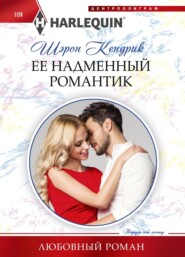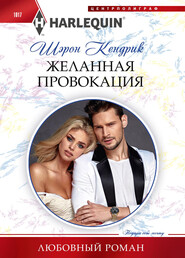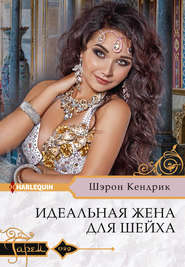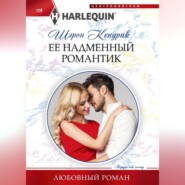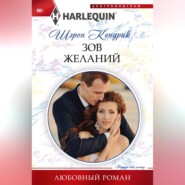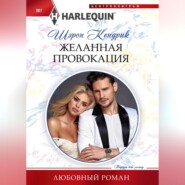По всем вопросам обращайтесь на: info@litportal.ru
(©) 2003-2024.
✖
Cruel Angel
Автор
Год написания книги
2018
Настройки чтения
Размер шрифта
Высота строк
Поля
She briefly looked down towards the back of the house, to where Justin, the director, sat in his customary chair, but today, to her surprise, he was not alone. She could see the shadowy form of a man beside him.
She began speaking her lines, uttering them in the anguished way which was still comparatively easy for her to do. For who better could convey the despair and the loneliness of a marriage in its final death throes?
But she found the words unbearably difficult this afternoon. The atmosphere in the theatre was affecting her in a tangible way. She whirled to pick up the champagne glass to hurl at Adrian, and as she did her eye was caught by a movement next to the director. She stared into eyes that glittered like jet, and the plastic glass slipped out of her hand to bounce harmlessly at her feet. Her head bowed forward as if it were too heavy for her slender neck to support.
‘Oh, my God,’ she said weakly, and passed out.
When Cressida came round a few seconds later, it was to uproar all around, with Justin, the director, on his feet. ‘What’s going on?’ he was shouting. ‘See to her, someone!’ then, holding his hands helplessly up in the air, as he turned to the tall black-haired man who stood beside him.
‘I’m sorry about this; I don’t know what’s got into her. She must be ill.’
Cressida heard a horribly familiar voice—deep, with the slightest foreign inflexion.
‘Ill?’ The voice mocked. ‘Indeed?’
With a monumental effort she forced her eyes open to find herself surrounded by her fellow actors—Jenna holding a glass of water and Adrian proffering a cool cloth. She pushed them away, determinedly getting to her feet, smiling at Adrian to indicate that she wished to continue with the scene.
‘I’m fine,’ she insisted. It had been an illusion, she thought desperately. It must have been. A flashback brought on by the content of the play. ‘Fine. Honestly!’ She straightened her back as she stood up, giving her familiar wide-mouthed smile, which shrivelled and died like a scorched leaf when she saw that it had been no illusion. The man had risen, along with Justin, but he made the director fade into insignificance. He was staring at her intently, but the theatre was too dark to interpret the expression on his face. Not, she thought bitterly, that it had ever been a face which wore its feelings openly.
Her eyelids felt as if they had been weighted with lead, fluttering to cover the huge eyes, and when she opened them again he had gone.
She was unable to carry on. It had never happened before, and she was close to tears. She had always been a professional, through and through, and now here she was, a quivering wreck, her hands shaking as if she had seen a ghost.
But you have seen a ghost, tormented a voice in her head. The ghost of your past. You had never thought to see him again; not now—after all this time. Hadn’t she prayed for that, night after night, once her initial heartbreak was over?
Justin scrambled up on to the stage. He held out his hands and grasped hers tightly. ‘Don’t worry, lovie.’ He smiled. ‘Is it nerves, or are you ill?’
She gave a pale smile. ‘Headache,’ she said lamely. ‘I’m sorry, Justin.’
Justin fished a peppermint out of his pocket and began to crunch. ‘Go home,’ he said firmly. ‘And rest. You’re my favourite actress, and you’ve never pulled a stunt like this before. We’ll rehearse tomorrow instead. Now go! Quick! Before I change my mind!’
She wanted to ask him about the man sitting with him, about what he wanted with him. Or with her? But to ask that would be to acknowledge that she knew him, and that was the last thing she wanted. That was an area of her life which she had carefully concealed—a definite no-go area, and far too painful to resurrect.
She stumbled back to her dressing-room, collapsing into the chair in front of the mirror, her green eyes looking huge in her unnaturally white face, the full lips a ghastly slash of trembling scarlet.
Had she dreamed it? Could she just have imagined it? An over-active imagination conjuring up an image of him? She shook her head, the hairspray-stiffened fifties hairstyle scarcely moving. That had been no dream. That had been Stefano, in the warm, living flesh.
And then it dawned on her. The letter from her solicitor had gone to his in Rome just a couple of months ago, requesting a divorce after two years of separation. And it had gone unanswered. Stefano had ignored it. ‘Leave it for a while,’ her solicitor had reassured her. ‘There’s often a hiccup at this stage. Cold feet, perhaps. Your husband may have decided he doesn’t want a divorce, after all.’
Like hell, thought Cressida bitterly. An ultimatum delivered coldly, followed by absolute silence for two years. No further evidence was needed to convince her that Stefano wanted her out of his life.
She could remember the words he had used as if it had been yesterday. ‘I will not have you remaining in England to work, while I am in Italy. A wife’s place is by her husband’s side, and if you take this job then our marriage is over.’ But there had been no choice—she had to take it—that way lay sanity, at least. And what alternative had he offered her? A marriage growing worse by the minute with a cold, distant husband who seemed only to want her when she was in his bed?
Cressida stared sightlessly into the lighted mirror of her dressing-table, sitting as mute and as still as a statue. And in her heart she knew that she was waiting, so that when the knock came she didn’t even start, but moved slowly towards the door as if she had been put on automatic pilot.
It could, of course, have been anyone—a member of the cast, the director, or the prompt: all legitimate visitors to see how she was feeling after her unexpected collapse. But she knew without a doubt that it was none of these. Even the knock at the door was typical of the man—not loud and insistent, but soft and firm, the trademark of a man who did not have to yell and bluster to get what he wanted. Oh, yes, she thought, that was Stefano to a T—used to getting exactly what he wanted in that quietly determined way of his.
She pulled the door open, carefully composing her face, knowing that polite disinterest would be her most effective weapon. ‘Hello, Stefano,’ she said coolly.
Black eyebrows arched arrogantly. ‘Such a disappointing greeting for your husband,’ he murmured. ‘I had hoped for something a little more—familiar.’
The way he said the word made it sound like an insult, and yet the lilting Italian accent sent a shiver of graphic remembrance through her in spite of herself. She prayed for the right, dispassionate response. ‘You are my husband in name only,’ she stated. ‘We have been separated for over two years and legally that means I am now free to seek a divorce. Surely you realise that, Stefano?’
She had a reaction at last. There was a spark of anger in the dark, glittering eyes, but it was gone in seconds. ‘I realise it only too well, cara,’ he said, in a voice which was soft with menace. ‘But, as you know, divorce means nothing to me. In the eyes of the church—and in—’ he dropped his voice to a velvety whisper ‘—my eyes, we will always be man and wife, with all the endless and delightful possibilities that the state of matrimony offers.’
He stood, lounging in the narrow doorway, as though he had every right to be there, his stance relaxed, though she knew him well enough to know that the muscles beneath the smooth brown skin were flexed and alert.
Outwardly, she thought, he had changed little. Perhaps the features were slightly more fined down, but not dramatically so. Even as a relatively young man, his face had held none of the softness of youth. The eyes, even then, had been hard, glittering and farseeing, the beautiful mouth always distorted by its habitual cynical smile. She had never been able to imagine him as a happy and carefree little boy—always as the curt, calm man who knew exactly what he wanted. She looked into the implacable brown eyes, searching for some hint of why he was here, but she saw nothing, bar a flash of the only emotion she had allowed herself to remember. Desire.
She forced herself to remain calm. They were, after all, in the middle of a busy English city, in a theatre full of her colleagues. He might have succeeded in making her feel as though she were trapped in some derelict Italian mountain hut, miles away from civilisation, but she patently wasn’t. Why, she had only to raise her voice, and any number of people would come running to her aid. And Stefano was a powerful and successful businessman—it wouldn’t augur well for his professional or personal reputation if she started screaming her head off and the Press got hold of it. She could just imagine the field-day the newspapers would have with something like that.
The only problem being that he hadn’t done anything which wasn’t in any way totally above board. And he knew it. He was regarding her now with a look of infuriating amusement.
‘You look so angry,’ he mused. His tongue curved briefly over the perfect teeth which looked so brilliantly white against the olive skin. ‘I love that look,’ he whispered. ‘Sometimes you used to look just like that before we . . . ’
Her cheeks flared, and it was as much as she could do not to slap her hands over her ears. ‘Shut up!’ she spat at him, terrified that his words would make her picture what he had been about to describe. If she remembered that, she would no longer be in control. ‘Whether or not you consider we are separated is your problem. It’s a fact. We are. By English law.’
She steeled herself to ask him, ‘Why are you here, Stefano?’ She looked at him expectantly, but he said nothing.
The silence grew as the dark eyes swept slowly and deliberately down every inch of her body, at first dispassionately, but then they lingered on her breasts, at the soft swell which was emphasised by the pushed-up wire foundations of the swimsuit. The gaze moved down—she saw it alight with interest on the still flat line of her belly—and further down, dark eyes glinting as they stared very deliberately at the soft curves of her bare thighs.
Her cheeks stung with fire as she registered the insolence of the inspection. She responded with the kind of flip comment she knew he would detest. ‘Seen enough?’ she taunted.
The cynical mouth curved. ‘I don’t think so,’ he murmured. ‘I don’t think I’ve seen nearly enough. But these others . . . these . . . ’ Here he spat out a word in Italian, a word she had never heard before.
She raised her eyebrows. ‘Sorry?’ she said haughtily. ‘I’m afraid you’ve lost me.’
His eyes narrowed. ‘Perhaps you would call them voyeurs,’ he hissed.
‘Voyeurs?’ she interrupted scornfully. ‘What on earth are you talking about?’
‘The audience,’ he spat out. ‘The ones who come to feast their eyes on you.’
She laughed aloud. ‘Oh, come, come, Stefano—I’m hardly indecently clad.’
‘Do you like it?’ he asked suddenly, his voice dangerously soft.
Bewildered, she stared at him. ‘Like what?’
‘These men, in the audience—the ones who watch you, who look at you, who want you in their beds at night. Does it excite you? Does it?’
She made as if to turn away, but he stopped her with a light touch of her forearm which didn’t fool her for a moment—she could feel the steely strength behind it.
‘Does it?’ he persisted. ‘Do you like them to look at your . . . breasts?’ She gasped as he reached out and almost idly moved his hand down to encircle and to cup one breast, moving it skilfully over the nipple, knowing through years of experience, and the instinct he had always possessed when it came to touching her body, how to imprison it there through pleasure alone. Her knees sagged, as the spirals of pleasure shot through her body like flames. It had been so long. So long . . .
He was not speaking now, as if he sensed that words would make reality intrude, his fingers speaking for him as they moved with sweet accuracy over the thin material of the swimsuit. He bent his head to kiss her neck, slowly and luxuriously, moving to suck gently and erotically on the lobe of her ear, and then at last possessing her mouth in such a way as to make her fleetingly, incredulously think that his need was as fierce as her own. And even while she despised her weakness, she gave herself up to that kiss, returning it with a long-suppressed hunger as though it were the last true thing in the world.
Even during the bad times—and there had been many of those—even the very worst times, he had always been able to do this to her—to extract this response from her. He had been her teacher, her tutor, her master. He had schooled her in the art of love, and he, only he, could do this to her.







